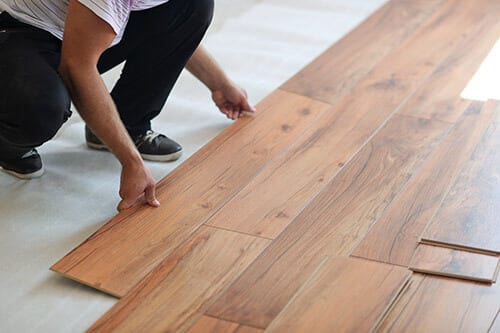
When it comes to choosing the perfect flooring for your home, there are many options available, from tile and carpet to hardwood and laminate. One option that has become increasingly popular in recent years is engineered hardwood flooring.
Engineered hardwood is a type of flooring that is made up of several layers of wood veneer that are pressed together under high pressure and heat. The top layer is typically made of hardwood, such as oak or maple, while the bottom layers are made of plywood or high-density fiberboard.
There are several advantages and disadvantages to using engineered hardwood flooring in your home. In this article, we will discuss the pros and cons of this type of flooring so that you can make an informed decision.
Pros of Engineered Hardwood Flooring
- Durability: Engineered hardwood flooring is more durable than traditional hardwood flooring because of its multiple layers. It can withstand high traffic areas and is less likely to scratch or dent.
- Moisture Resistance: Unlike traditional hardwood flooring, engineered hardwood is less susceptible to moisture damage. Its construction makes it less likely to warp or buckle when exposed to humidity or water.
- Easy Installation: Engineered hardwood flooring is designed for easy installation. It can be nailed down, glued down, or floated over an existing floor, which can save time and money on installation costs.
- Wide Range of Styles: Engineered hardwood flooring comes in a wide variety of styles, colors, and finishes. This allows you to choose a flooring that matches the aesthetic of your home.
- Cost-Effective: Engineered hardwood flooring is often less expensive than traditional hardwood flooring, making it a more cost-effective option for homeowners.
Cons of Engineered Hardwood Flooring
- Not as Authentic: While engineered hardwood flooring is made of real wood, it does not have the same authentic look and feel as traditional hardwood flooring. The top layer is often thinner than traditional hardwood, which can impact the look and durability of the flooring.
- Limited Refinishing: Engineered hardwood flooring can only be refinished a limited number of times due to its thinner top layer. This means that it may not last as long as traditional hardwood flooring.
- Prone to Scratching: While engineered hardwood flooring is more durable than traditional hardwood flooring, it is still prone to scratching. This can be a concern for homeowners with pets or children.
- Not Suitable for High-Moisture Areas: Despite its moisture resistance, engineered hardwood flooring is not suitable for high-moisture areas, such as bathrooms or basements.
- Chemical Sensitivity: Some individuals may be sensitive to the adhesives and chemicals used in the production of engineered hardwood flooring. This can be a concern for those with allergies or respiratory issues.
Conclusion
Overall, engineered hardwood flooring is a popular and cost-effective flooring option that offers many benefits for homeowners. Its durability, moisture resistance, and easy installation make it a great choice for high traffic areas in the home. However, it is important to consider its limitations, such as limited refinishing and scratching, before making a decision. Ultimately, the choice between traditional hardwood and engineered hardwood flooring will depend on your personal preferences, budget, and lifestyle.



